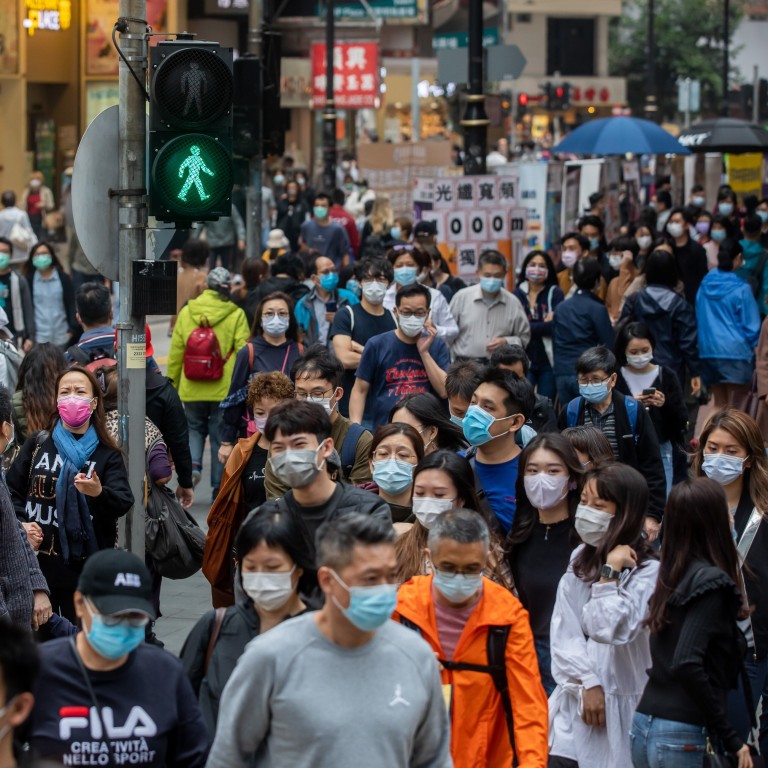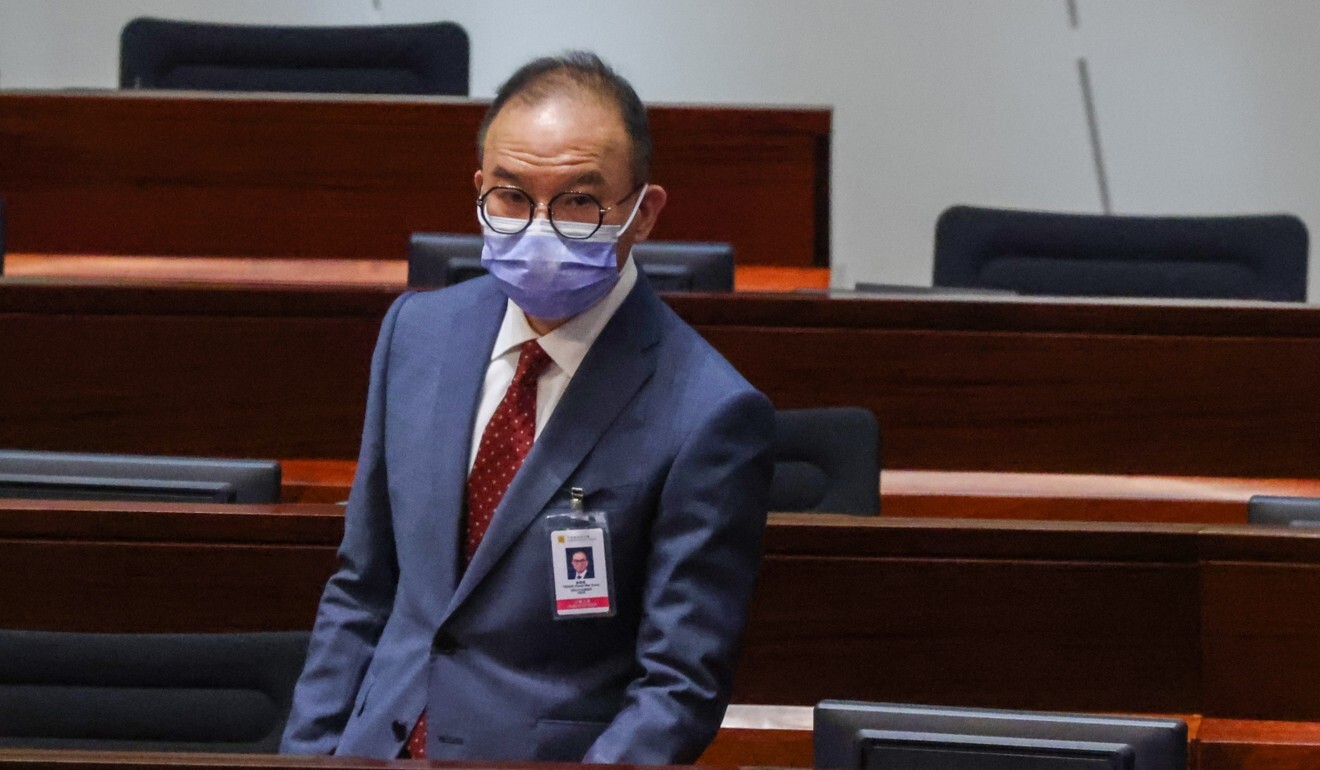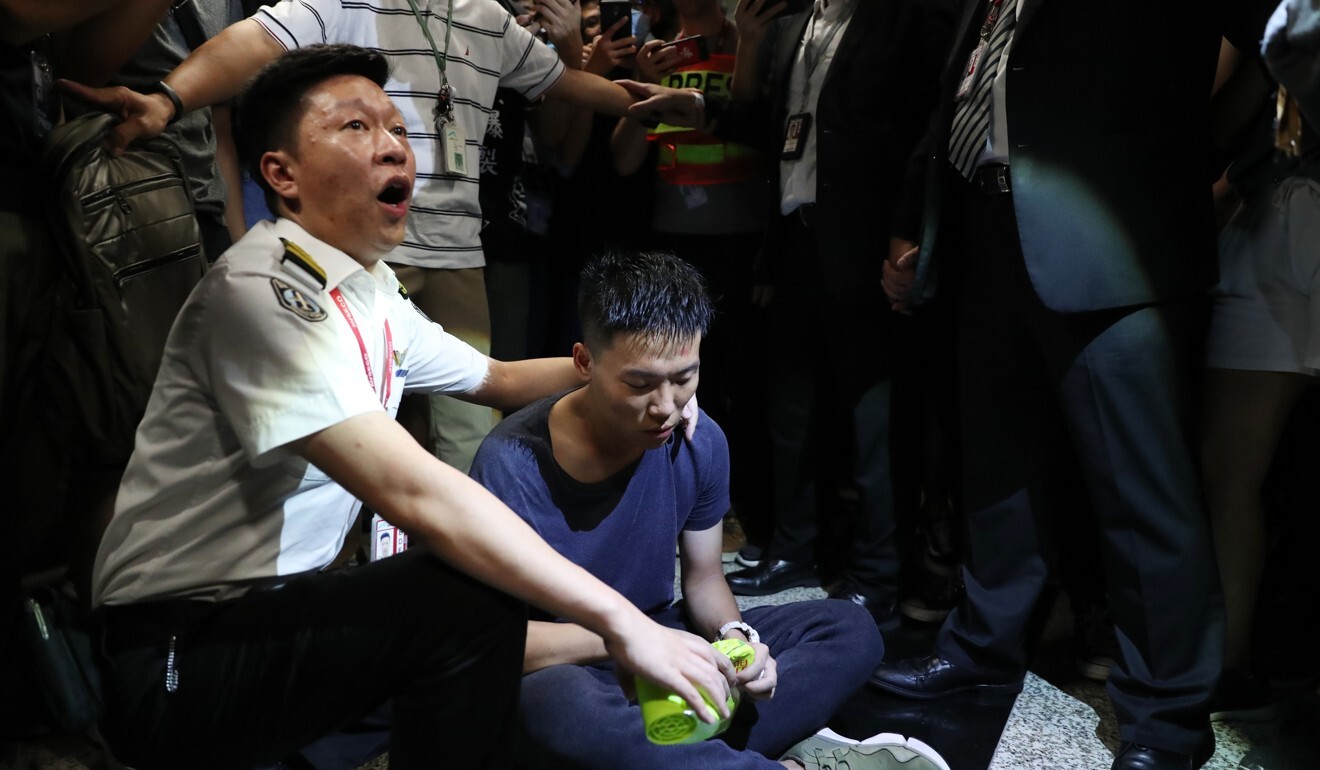
‘This should not be rushed’: expansion of Hong Kong discrimination laws to cover mainland Chinese must be balanced, experts say
- Discrimination against mainlanders is not uncommon in Hong Kong, and UN bodies have called the city out for not doing enough to fight it
- But, one expert warns, ‘in the present context, the government is already using laws to stifle freedom of expression’
A proposed expansion of Hong Kong’s anti-discrimination laws to give mainland Chinese people protected status – recently revived after years of lobbying – must be narrow in scope, legal experts have warned, lest the changes chip away at freedom of expression.
The government should also adhere to concrete principles laid down in past court cases in formulating any changes, they added, despite officials insisting such protections are desperately needed and in line with evolving international human rights law.
“This should not be rushed, as it is important to get the balance with freedom of speech right, adopting international standards,” said human rights lawyer Mark Daly.

Hong Kong has four anti-discrimination ordinances in place, including one that offers protection on the basis of race. However, that does not cover the kinds of discrimination and slurs sometimes directed by the city’s residents at their compatriots from across the border.
During a session on Monday, Tsang said that his bureau would come up with a legislative blueprint before the current government’s term ends in June next year. Once that was completed, he said, the next government was expected to move forward swiftly with the legislative process.
Kelley Loper, an associate professor who specialises in equality law at the University of Hong Kong, said discrimination against people from the mainland was “well documented” in the city.
“In fact, international human rights bodies have called on the Hong Kong government on several occasions to prohibit such discrimination within our existing anti-discrimination laws,” she said.
Insulted, humiliated, shunned: mainland immigrants face unending discrimination
The United Nations’ Committee on the Elimination of Racial Discrimination, she noted, had recommended including “immigration status” as grounds for discrimination under the law.
The UN Committee on Economic, Social and Cultural Rights, meanwhile, was quite explicit in a 2005 report on Hong Kong, saying: “The committee is concerned that in the proposed racial discrimination law, the protection it affords will not cover migrants from the mainland despite the widespread de jure and de facto discrimination against them on the basis of their origin.”
Despite the government’s recent emphasis on greater cross-border integration, some Hongkongers have long had an uneasy relationship with their mainland counterparts.
Entrenched political differences fed into a localist movement that sprang up in 2015 to champion Hong Kong identity and autonomy. That movement has both fuelled and been fuelled by cultural and economic resentments that have seen local residents protest against the impacts of mainland tourists and cross-border parallel traders, whom they blame for congestion and a higher cost of living.

“Locusts” and “communist thieves” are among the derogatory terms hurled at mainlanders in Hong Kong, as pro-establishment lawmaker Regina Ip Lau Suk-yee noted on Monday while grilling Tsang about his progress on the legislation.
A spokesman from the Constitutional and Mainland Affairs Bureau on Tuesday said it did not have a definitive view on the scope and content of the legislative proposals yet. “Our goal is to chart the way forward in close consultation with the Equal Opportunities Commission within this term of the government,” he said.
There have been suggestions that the amendments should grant police new powers to conduct investigations, while generally banning comments directed not just at individuals, but at larger groups. Current discrimination laws in Hong Kong are largely civil in nature, allowing aggrieved individuals to sue for damages.
‘Super rude and racist’: Sephora Hong Kong accused of racial profiling
HKU’s Loper said that if authorities intended to turn any discriminatory act into a criminal offence, a high threshold requiring proof of serious vilification or hate speech would be needed.
“Most anti-discrimination laws protect individuals rather than groups,” she added.
Law lecturer Darcy Davison-Roberts, Loper’s colleague at HKU, noted that the Race Discrimination Ordinance already gave police the power to investigate in serious cases. The offence of “serious vilification” is punishable by up to two years in prison, though no one has ever been successfully prosecuted under law.
Davison-Roberts also pointed out that the ordinance had been criticised in the past for its limited definition of “race” – not to mention for exempting the government from its provisions. Other jurisdictions, such as New Zealand, Britain and Australia had already broadened their definitions to include nationality and residency status, for instance.
“The expansion of the definition of race to be more inclusive can only be seen as beneficial and in line with the objectives of anti-discrimination legislation more broadly,” she said.
Banks failing on diversity pledges, says ex-HSBC banker who wrote racism report
Human rights lawyer Patricia Ho Pui-chi, meanwhile, said she hoped the expansion in scope would benefit other marginalised groups as well.
“The public have for some time been concerned about racial profiling that can be meted out by service providers, landlords, even by the press or by law enforcement. I expect that the government will not be singling out one particular racial group to protect,” she said.
However, for all the good the proposed amendments might do, Davison-Roberts also acknowledged the tightrope such legislation must walk.
“The right to free speech is fundamental and vital to a vibrant and open society. The right to be treated equally and without prejudice is also fundamental and thus, the tension,” she said.
“Where does one right end and the other begin? The answer is, we attempt to strike a fine balance and ensure that any restriction on free speech or equality rights are proportionate and justifiable. Once speech strays into hate speech or seeks to incite individuals or groups to engage in criminal activity, the societal interest in limiting it is clear.”

